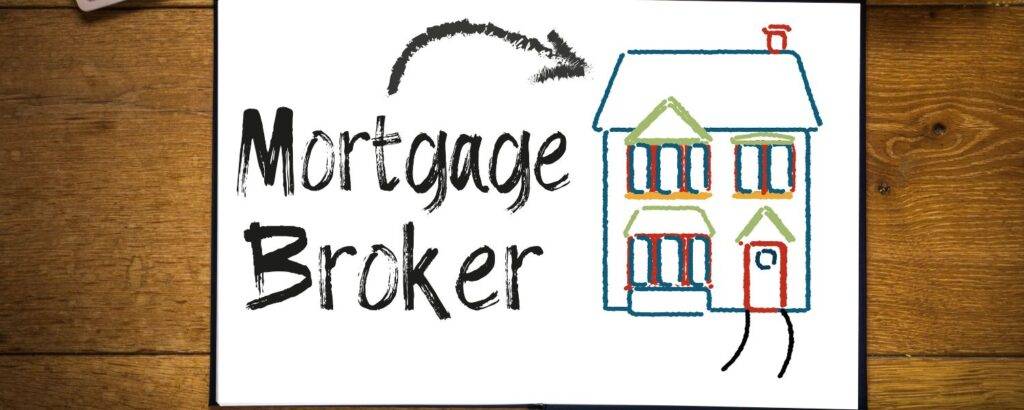Becoming a property owner is a dream cherished by many. The thought of having a place to call your own, a space to build memories and secure your future, is an aspiration that drives individuals and families alike.
However, the daunting hurdle of scraping together a large deposit often stands in the way of this dream. Fortunately, there’s a solution – low-deposit home loans. This blog will explore how low-deposit home loans can pave your path to property ownership.
Understanding Low Deposit Home Loans:

As the name suggests, low-deposit home loans are mortgage options requiring a smaller upfront deposit than traditional mortgages. While conventional wisdom dictates that a hefty 20% deposit is needed to secure a home loan, low deposit options allow aspiring homeowners to enter the property market with a deposit as low as 5%. These loans make property ownership more accessible and attainable, especially for first-time buyers.
The Dream of Property Ownership

1. The Australian Dream
In Australia, property ownership is often called the “Great Australian Dream.” It’s a symbol of financial stability and a place where you can truly call your own.
2. Creating a Foundation
Property ownership is like laying the foundation for your financial future. It provides a stable foundation and the opportunity for the gradual accumulation of long-term wealth.
The Role of Low-Deposit Home Loans

1. Making Dreams Accessible
Deposit Home Loans are designed to make property ownership accessible to those who might not have a large lump sum for a deposit.
2. Reducing the Barrier
These loans lower the hurdle for first-time homebuyers, enabling them to embark on their initial journey onto the property ladder.
Benefits of Low-Deposit Home Loans

1. Access to the Property Market
These loans open doors to the property market for those needing a substantial savings balance.
2. Building Equity
While it’s true that a larger deposit can mean lower monthly repayments, low-deposit home Loans allow you to enter the property market sooner and start building equity.
3. Government Grants
Depending on your eligibility, you may also qualify for government grants and incentives, reducing the cost of entering the property market.
4. Tax Benefits
Owning a property can come with tax benefits, making it an attractive option for those looking to invest in their financial future.
Tips for Securing a Low-Deposit Home Loan:

1. Save for the Deposit
Even though low deposit loans require less upfront, it’s still crucial to save as much as you can for a deposit. A larger deposit can result in better loan terms.
2. Manage Your Credit
Maintain a good credit history and resolve outstanding debts. Lenders will assess your creditworthiness when considering your application.
3. Explore Government Support
Some governments offer grants and incentives for first-home buyers, which can boost your deposit or reduce fees.
4. Seek Professional Advice
Consult a mortgage broker or financial advisor specialising in low-deposit home loans. They can help you navigate the complexities of the process.
Eligibility Criteria

1. Age and Citizenship
To be eligible for Low Deposit Home Loans, applicants typically need to be 18 years or older and either an Australian citizen or permanent resident.
2. Previous Grant Recipients
You or your spouse must have yet to receive a first home owner grant in any state or territory of Australia. However, some exceptions may apply.
3. Previous Home Ownership
You or your spouse must have yet to own residential property in Australia after specific dates.
4. Residence Requirements
You must move into your new home as your principal place of residence within a certain time frame and live there continuously for a specified period.
Understanding Mortgage Lenders and Brokers

When securing a home loan, you have two primary avenues to explore: mortgage lenders and mortgage brokers. As professionals in the mortgage brokerage field, we recognise the significance of elucidating the roles and distinctions among these essential participants in the home financing process. Let’s dive into the world of mortgage lenders and brokers to help you make informed decisions on your path to homeownership.
Mortgage Lenders

Mortgage Lenders: Financial institutions that specialise in providing home loans directly to borrowers are known as mortgage lenders. These institutions can include banks, credit unions, and specialised lending companies.
A) Pros of Mortgage Lenders
1. Direct Access to Loan Products
Mortgage lenders offer home loan products directly from their institution. This means you can explore the specific mortgage products they offer.
2. Potentially Easy Application process
Established customers with a good financial history may enjoy an easier application process when borrowing from a lender with whom they have an existing relationship including salary account and loans.
B) Cons of Mortgage Lenders
1. Limited to Their Loan Products
Mortgage lenders are limited to their loan products. This can restrict your options and leave you without the best fit for your unique financial situation.
2. Potentially Less Personalised Service
Lenders may not provide the personalised guidance and advice borrowers, especially first-time homebuyers, often need.
3. Best interest duty
Banks do not have Best Interest Duty (BID) which means that they don’t have an obligation to recommend a product that is in your best interest.
Mortgage Brokers

Mortgage Brokers Defined: Mortgage brokers are intermediaries acting on borrowers’ behalf to connect them with various lenders. These professionals work independently and are not tied to a specific lending institution.
A) Pros of Mortgage Brokers
1. Access to a Variety of Lenders
These brokers possess access to an extensive array of lenders, encompassing major banks, credit unions, and private lending institutions. This diversity allows them to find loan products that best match your needs.
2. Personalised Advice
Brokers work closely with borrowers to understand their financial situation and goals. They can provide tailored advice and recommend loan options that suit your circumstances.
3. Potentially Higher Chances of Approval
Brokers can help you identify lenders more likely to approve your loan application, even if you have unique financial challenges.
B) Cons of Mortgage Brokers
1. Brokerage Fees
While mortgage brokers’ services are generally free for borrowers, some brokers may charge fees. However, the lender typically pays these fees, not the borrower.
Why Choose a Mortgage Broker?

As mortgage brokers, we offer distinct advantages when it comes to securing a home loan:
1. Extensive Lender Network
We have access to a vast network of lenders, ensuring you have a wide array of loan products.
2. Personalised Guidance
We take the time to understand your financial situation and goals, providing personalised advice and tailored loan recommendations.
3. Simplify the Process
We simplify the application process, making it effortless for you to navigate the intricate realm of home financing.
4. Enhanced Approval Odds
With our knowledge of lenders’ criteria, we can increase your chances of loan approval, even if you face unique financial challenges.
Low deposit Home Loans are not just a financial tool but a gateway to achieving the dream of property ownership. As mortgage brokers, we specialise in helping you navigate the world of home loans and find the right solution to match your unique circumstances and goals. Property ownership may be closer than you think with the right guidance and support. Understanding the roles of mortgage lenders and brokers is crucial to this journey. Any query? Visit us




